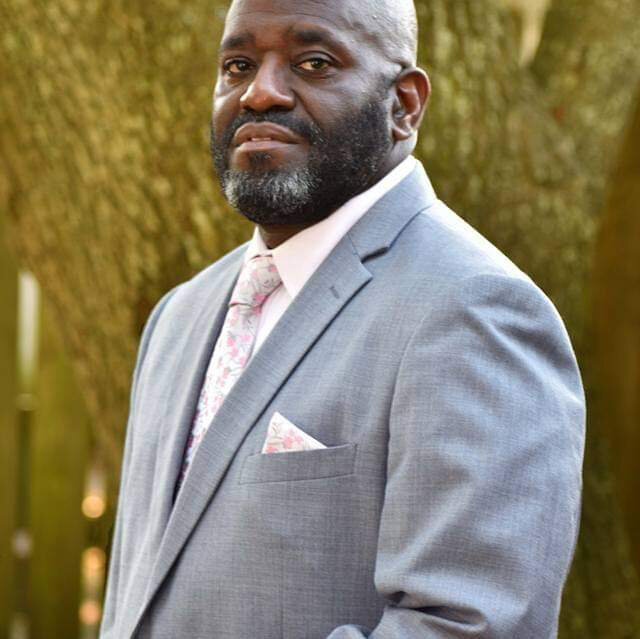A Clergyman Who Spoke the Words ’Domestic Violence’ Publicly
On the Mississippi Gulf Coast, Stacey Riley is CEO of the Gulf Coast Center for NonViolence Inc. The nonprofit center is the largest program for victims of domestic violence in Mississippi: It runs a shelter in Biloxi, which houses up to 44, and another in Pascagoula with 16 beds. But, Riley says, “we never turn anyone away. If we have to put someone on a couch, we will; we never want to leave a victim in danger.”
Riley is bracing for the coming holidays. She said holidays and crises like hurricanes or COVID-19 mean families reunite. For example, after Hurricane Katrina, some separated couples found themselves living together in FEMA trailers without any privacy. COVID-19 has had a similar effect. Around the holidays, Riley says, a victim “decides that maybe she overreacted, or maybe he’s really changed. She returns home, and his attempts to control her increase, because he’s expecting her to try to leave again.”
Riley has formed a Coordinated Community Response team, mandated by the Violence Against Women Act that funds shelters in every state. Riley’s team meets over the phone every Tuesday to develop and implement interagency procedures and a more uniform approach to domestic violence and in the center’s case, sexual assault and trafficking. Team members include a representative of Keesler Air Force Base in Biloxi and Imam Tariq Abdul-Mu’Min from Biloxi Islamic Center and Mosque, established in 1971.
Abdul-Mu’Min, who took charge as imam at the Biloxi Islamic Center 10 years ag0, spoke from the lectern, about domestic violence as “a very serious issue and, yes, we are plagued with it.” Photo courtesy of Abdul-Mu'Min
Iman Abdul-Mu’Min is African American and grew up in Carthage, east of Jackson in central Mississippi. In 1973, when he was only 10, he met some Muslims selling goods on the street. After talking to them, he went home and told his mother, “I want to be a Muslim!” His mother, he said, replied, “Okay, baby.” She remained supportive and told him that, in fact, one of his great-aunties had been a Muslim and always wore “customary dress.”
At the Biloxi Islamic Center, Abdul-Mu’min took charge as imam 10 years ago. His community is mainly African American, but includes some Pakistanis as well as Saudi Arabians and other Muslims who are training at Keesler. (There are other Muslim communities in Mississippi near Hattiesburg and in Jackson.)
With the approach of October 2020, National Domestic Violence Awareness Month, the imam said Riley asked him, as a local religious leader, to carry out some form of outreach at the Islamic Center. So on Oct. 3, he decided to devote his weekly lecture to domestic violence. (A video of his lecture is available on the Biloxi Islamic Center’s Facebook page.) This is a rare instance of a clergyman speaking publicly about domestic violence in an official capacity as a community religious leader.
Standing at a lectern, the imam said domestic violence is “a very serious issue and, yes, we are plagued with it.” He went on to clarify what the Qu’ran and the prophet Muhammad say about domestic violence: “It was a problem in societies in the Arabian peninsula” when Muhammad was alive, as well.
Due to misinterpretation of a single Arabic word in the Qur’an, he said, some scholars and general readers have formed the idea that men are allowed to beat their wives. Not true, the imam said. In fact, the Qur’an forbids men to physically strike women.
He went on to say leaders of Muslim communities may ignore a case of domestic violence because the abuser is a personal friend or “has deep pockets” and contributes generously. Victims may not reveal what is happening to them because of shame or fear and may use traditional Muslim dress to conceal their injuries. But if a victim does approach a community leader, the first thing he should say to a victim is, “Have you called the police?”
Imam Abdul-Mu’Min considers his lectures more powerful when he includes examples from his own life. So in his talk on domestic violence, he mentioned an incident from in his 20s, during a former marriage, when he lashed out verbally at his wife because another man had shown up. “God alone gave me the strength and discipline not to lash out physically,” the imam recalled.
He also talked about another incident when some male friends heard about a man who was beating a woman, and “they decided to go whup him.” This incident, he said, is another reason why he always recommends calling the police: His friends who took matters into their own hands could have been arrested on assault charges.
I sincerely hope that other clergy in Mississippi and around the country, regardless of their faith, will follow this imam’s courageous example.
Ann Marie Cunningham is a Columbia University Lipman Fellow for 2020 who will be working with the Mississippi Center for investigative Reporting. She is a veteran journalist/producer and author of a best-seller. Her work has appeared in The New York Times, Los Angeles Times, Technology Review, The Nation and The New Republic. Contact her at amclissf@gmail.com.


